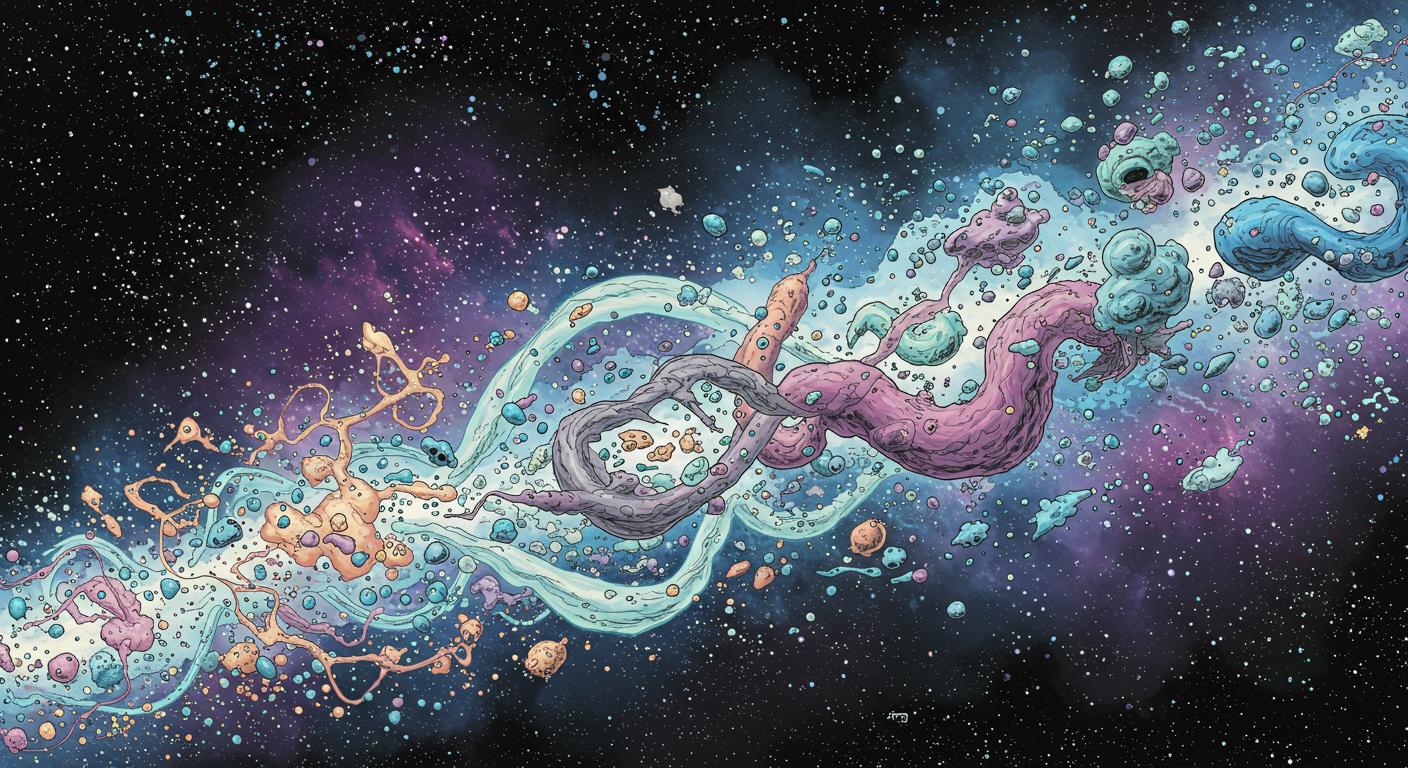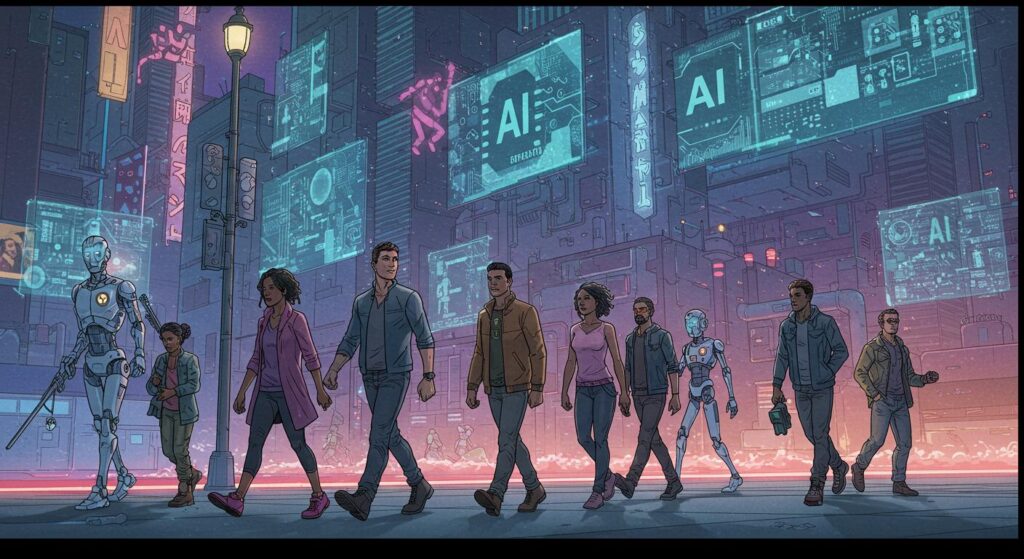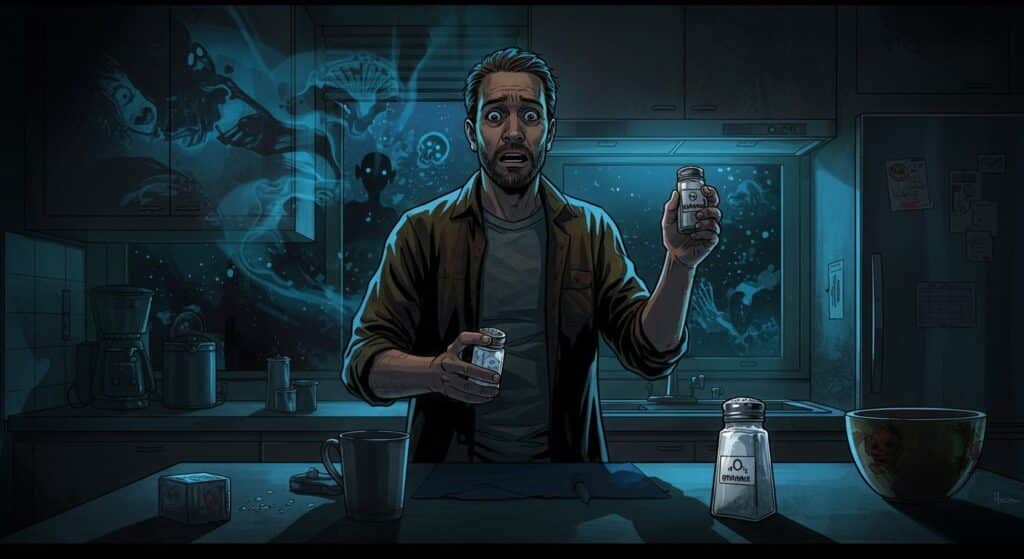Nothing throws the universe into sharper relief than being told, with the considerable authority of a philosopher of science, that it doesn’t actually consist of “things.” For anyone who’s ever stubbed their toe on a coffee table, this conclusion might seem a tad counterintuitive. Yet, as explored by Olimpia Lombardi in a recent piece for IAI News, quantum physics is once again urging us to set aside our common sense and rethink—from the ground up—what anything even is.
The Individual Is Cancelled (At Least Quantumly Speaking)
If you’re picturing the universe as a cosmic playroom of building blocks—nicely stackable, separate, and each with its own label—Lombardi’s analysis encourages a hefty dose of skepticism. According to the IAI News article, the quantum world is less like a tidy assemblage of cubes and more like an undivided soup whose ingredients can’t be isolated without the whole thing sloshing along. At the most basic level, Lombardi writes, there aren’t truly “individual” things at all. Instead, we’re faced with waves of possibility, entities whose properties only snap into focus in certain contexts—never, it seems, all at once.
The article identifies four distinct quantum features that upset the traditional metaphysical apple cart: uncertainty, contextuality, non-separability, and indistinguishability. As Lombardi highlights, uncertainty is the poster-child here, embodied by Heisenberg’s famous principle: you can’t pin down both a quantum particle’s position and momentum with absolute precision, and this is a fundamental aspect, not a measurement error. Contextuality is another twist the source discusses—what you observe depends on how you interrogate the system, in a way that’s profoundly unlike anything in the classical world. Add in non-separability (entanglement among quantum systems that resist being seen as separate entities), and indistinguishability (particles minus unique identities), and the whole concept of “things” frays dramatically.
Categories: More Complicated Than a Library Card Catalog
Speaking as someone with a longstanding faith in categories, filing, and making sense of chaos, quantum mechanics delivers the kind of ontological turbulence that would give even the Dewey Decimal System heart palpitations. Lombardi explains that, whereas physicists and philosophers once relied on ontological categories—object, property, relation, cause—as the basic modes of being, quantum physics shows these divisions simply stop behaving in expected ways at small scales. The article points out that categories aren’t just organizational schemes or labels like “yellow” or “round;” they’re more like the deep scaffolding of reality, structuring any possible classification.
The IAI News piece underscores that classical language stumbles here as well. When we refer to “this electron” or “that particle,” we’re borrowing from a grammar built for worlds where individuality is assumed. The article argues this breaks down in the quantum domain: particles can’t be told apart even in principle, and their identities blur in entanglement. Singular terms—“this,” “she,” “the richest person”—make logical sense only when there’s a well-defined individual on the other end, but quantum mechanics flatly refuses to provide one at the fundamental level. Anyone who’s ever tried to catalog something that refuses to keep its label will find this both exasperating and oddly reassuring.
Reality Might Just Be a Feature, Not a Bug
So, what does all this mean for our daily assumptions about reality? Lombardi, as featured in IAI News, suggests that the everyday model of the world as a collection of isolated objects is less a universal truth and more a story that helps us get by. The article frames the quantum perspective as a gentle demolition of the idea that individual things with definite properties form the bedrock of existence. Instead, what stands revealed is a reality where separation and individuality are context-sensitive at best.
According to Lombardi’s analysis, this doesn’t mean your sandwich is likely to quantum tunnel out of the fridge—fortunately for lunch everywhere. But it does put the lie to any rigid distinction between “objects” and “not-objects.” Everyday solidity is a kind of narrative overlay on a world that’s permanently blurry at its boundaries. Viewing the universe this way, as less a crisp collection of parts and more an entangled, interconnected wave of possibility, grants an odd sort of freedom: all those fuzzy classifiers and muddled boundaries aren’t signposts of ignorance but reflections of how things—or non-things—really are.
Summing Up the Mess (And Finding It Fairly Liberating)
Is nothing real? Directly referencing Lombardi’s conclusions, it depends on what you mean by “real.” Reality, from the quantum perspective outlined in the article, turns out to be a layered affair: definite enough to stand on, indeterminate enough to make theorists sweat. Our familiar mental furniture—socks, sandwiches, library cards—works well for living at our scale, but begins to look like convenient fiction as we zoom in.
Maybe there’s something liberating in this cosmic muddle. If the best science now suggests that separation itself is more of a gentle suggestion than a hard-and-fast rule, then perhaps it’s time to grant ourselves a little leeway in the cataloging department. The next time your socks vanish or your thoughts scatter, recall that even the universe can’t settle on definitive boundaries. In a world where individuality itself is blurry, it seems worrying about rigid borders might always have been beside the point. Is the quantum world disconcerting, comforting, or just plain weird? Sometimes, all three, and apparently that’s the most real answer you’re going to get.







